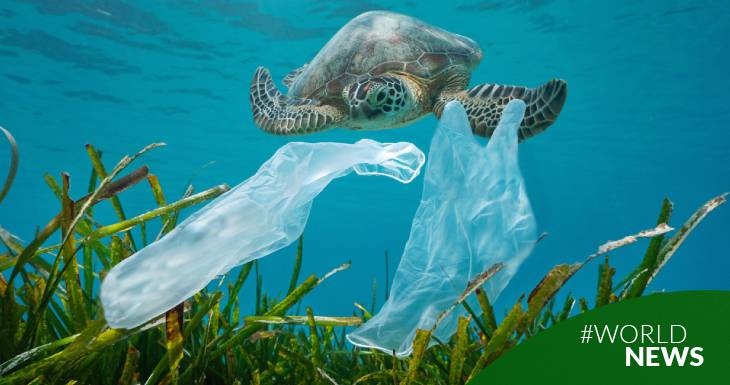International Plastic Bag Free Day is celebrated around the world on July 3rd, a date that seeks to raise awareness about the plastic bags negative impact on the environment and promote the adoption of more sustainable alternatives. This initiative aims to encourage a change in our consumption habits and promote a transition towards a plastic-free society.
Many countries have already implemented legislation to restrict or ban the use of disposable plastic bags, encouraging the adoption of reusable bags, paper bags, or other eco-friendly options.
When we use a plastic bag for a few minutes, its useful life does not end there as it takes hundreds of years to decompose, and many of them end up in our oceans, causing a serious threat to marine life.
In addition, they clog drainage systems and generate a large amount of waste that ends up in landfills or incinerators, depleting our natural resources and emitting greenhouse gases.
But plastic bags are just the tip of the iceberg:
Plastic debris that has decomposed and is less than 5mm in length is termed microplastics, an even more insidious problem. They are produced by the division of larger plastics that, by becoming smaller and smaller, invade the entire environment, especially water.
Scientists have shown that microplastics can be found throughout their digestive tract in more than 100 aquatic species. That is, the marine fauna is being contaminated by them. For example, it is very typical to find turtles with intestinal obstruction due to microplastics. And a big question is how long microplastics travel through the ocean.
The ingestion of microplastics by humans could generate multiple cardiovascular conditions due to the fact that they promote inflammation, oxidative stress, necrosis and apoptosis. In addition, scientists believe that it can contribute to the appearance of neurological and reproductive problems. Over time, these microplastics are likely to get even smaller. These particles could get into our tissues and act in a toxic way.
They accumulate in our bodies and have the ability to carry potentially harmful elements, such as antibiotic-resistant bacteria. Some research indicates that microplastics could interact with cells of the immune system and cause a chronic inflammatory response, which could increase the risk of autoimmune diseases and inflammatory disorders.
Research on the effects of microplastics on human health is in progress and more scientific evidence is still needed to fully understand their impact. Currently, studies are being carried out to assess potential risks and establish appropriate regulations.
Meantime, to reduce exposure to microplastics, it is advisable to take measures such as reducing the consumption of single-use plastic products - bags in the first place -, choosing fresh food instead of packed in plastic and filtering drinking water when possible.
Every little change in our daily habits counts. Together, we can make a difference and protect the planet from plastic devastating effects. By uniting on this International Day, we show our commitment to a sustainable, plastic-free future.


